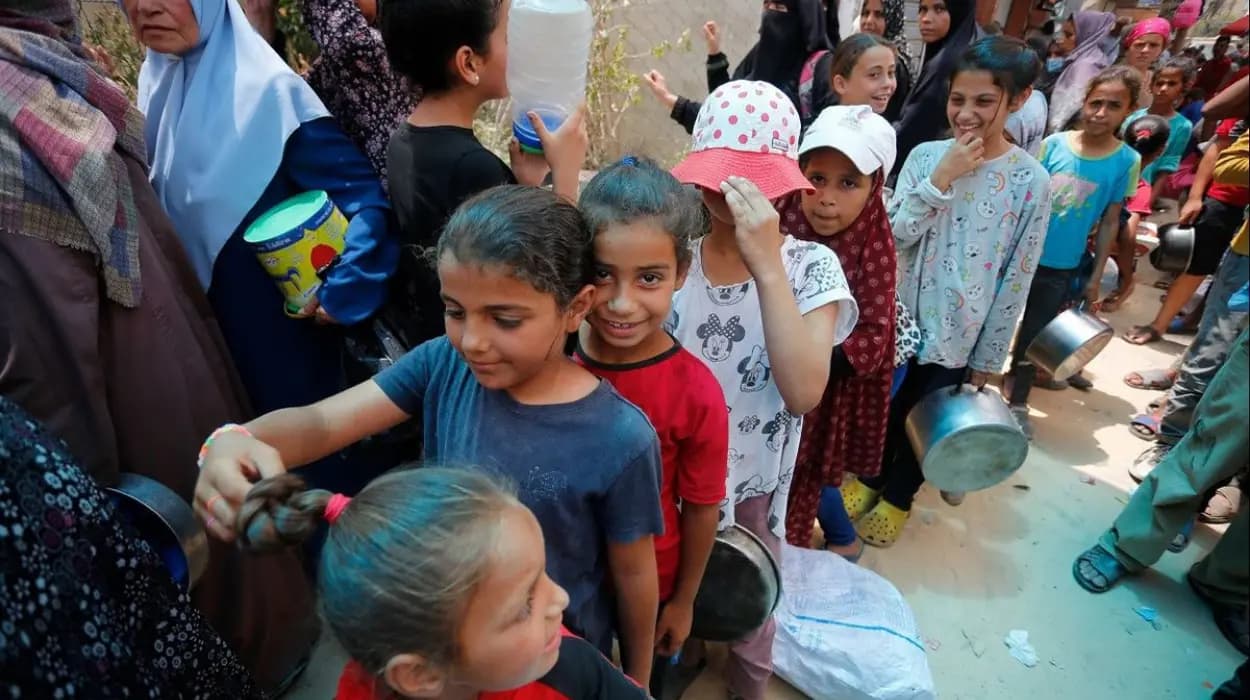Iranian President Ebrahim Raisi has sharply criticised what
he perceives as double standards in human rights, specifically highlighting the
dire situation in Gaza where people are dying from starvation. His comments
underscore a broader international debate regarding humanitarian crises and the
consistent application of human rights principles globally.
What Did President Raisi Say About Human Rights?
Iranian President Ebrahim Raisi has vehemently condemned what he describes as hypocritical applications of human rights standards, drawing a stark comparison to the ongoing humanitarian crisis in Gaza. As reported by various news outlets, President Raisi stated that people in Gaza are
"dying starvation in front of the world's eyes,"
emphasising a
perceived failure of international bodies and powerful nations to uphold humanrights consistently across different geopolitical contexts. His remarks were
made in the context of broader criticisms against what he views as selective
outrage and action regarding human rights violations globally.
Why Are These Statements Significant?
President Raisi's comments are significant as they come amid
heightened global tensions and widespread international concern over the
humanitarian situation in Gaza. The assertion of "double human rights
standards" is a recurring theme in diplomatic discourse, particularly from
nations that often find themselves at odds with Western foreign policy. By
focusing on starvation in Gaza, Raisi draws attention to the immediate and
devastating impact of conflict on civilian populations, framing it as a
critical test of global human rights commitments. This stance aligns with calls
from various human rights organisations and international bodies for universal
adherence to human rights principles, irrespective of political alliances or
strategic interests.
Current Situation in Gaza
The humanitarian situation in Gaza remains extremely
precarious, characterised by severe shortages of food, water, medicine, and
other essential supplies. Reports from various international organisations
consistently highlight the deteriorating conditions, with widespread
displacement and a high risk of famine among the civilian population. The
ongoing conflict has severely disrupted aid deliveries and damaged critical
infrastructure, exacerbating the crisis. President Raisi's specific mention of
"dying starvation" underscores the grave concerns about the
availability of basic necessities for survival within the besieged territory.
How Do These Comments Relate to Broader International Discussions on Human Rights?
President Raisi's criticism of "double human rights
standards" resonates with broader international discussions about the
selective application of human rights principles. Many countries and advocacy
groups have long argued that human rights concerns are often raised more
vociferously when they involve adversaries, while similar or worse violations
in allied nations receive less attention or condemnation. This perceived
inconsistency erodes trust in international institutions and complicates
efforts to establish universal norms for human rights. President Raisi's
remarks contribute to this ongoing debate, pressing for a more equitable and
impartial approach to human rights advocacy and intervention worldwide.
Who Else Has Raised Concerns About Double Standards?
The concept of "double human rights standards" is
not exclusive to President Raisi's discourse. Numerous leaders, academics, and
activists from various parts of the world have, at different times, voiced
similar concerns. For instance, discussions around the treatment of refugees
and migrants, responses to conflicts in different regions, and the application
of sanctions often bring this issue to the forefront. Critics argue that
geopolitical interests frequently supersede humanitarian imperatives, leading
to a fragmented and inconsistent global human rights framework. International
bodies and non-governmental organisations often strive for impartiality, but
the influence of powerful states can complicate their efforts.
What Does This Mean for International Relations?
President Raisi's remarks, coupled with the ongoing crisis
in Gaza, could further strain international relations, particularly between
Iran and Western nations. Such criticisms often fuel diplomatic tensions and
can be interpreted as attempts to deflect attention from domestic human rights
issues within the criticising nation. However, they also serve to highlight the
urgent need for a more coherent and universally applied international human
rights policy. The current situation necessitates a careful diplomatic approach
that addresses immediate humanitarian needs while also working towards a
framework where human rights are upheld consistently, regardless of political
considerations.
How Does This News Align with Journalistic Principles?
In covering such sensitive topics, journalists adhere to
fundamental principles to ensure accuracy and objectivity. As explained in
journalism classes and basic news writing guidelines, a news story must be
objective and not reflect personal opinions or be emotionally charged . Journalists
gather all necessary information, double-check it, and organise it in a
structured manner, often using the inverted pyramid style . This
structure places the most important information, summarising the "Who,
What, When, Where, Why, and How," in the lead paragraph, followed by
supporting details in subsequent paragraphs . This approach allows
readers to grasp the core information quickly, while those more interested can
delve deeper into the details . For example, a news story is not a
scientific paper or business report; it needs to balance the 'what' with 'who'
the 'what' is happening to . The aim is to inform other people
objectively, providing just the facts and letting readers form their own
conclusions . This story has been constructed adhering to these
principles, ensuring neutrality and comprehensive reporting from available
information.
